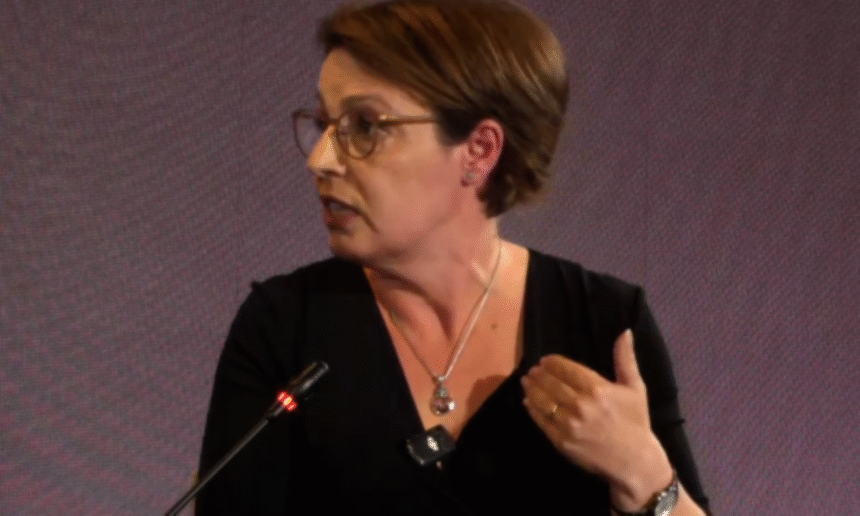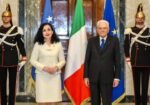Donika Gërvalla Publishes Post-Seance Statement on Facebook After Media Silence Kosovo’s Deputy PM claims selective media blackout amid worsening press freedom concerns
In the wake of a failed parliamentary session on Friday, Kosovo’s Deputy Prime Minister and MP, Donika Gërvalla, took to Facebook to release her statement, claiming that “some media” refused to broadcast her remarks live.
Gërvalla’s statement followed a silent protest aired by T7, which broadcasted her speech without audio. According to journalist Arsim Lani, the decision was a direct response to the increasingly hostile language used by members of Vetëvendosje (LVV) – the ruling party – toward the press.
The incident unfolds just as Kosovo faces growing international scrutiny over media freedom. On Friday, Reporters Without Borders (RSF) published its 2024 World Press Freedom Index, which revealed that Kosovo has dropped 24 places, now ranking worse than Serbia in the region. The sharp decline marks a significant setback for democratic standards in the country.
The Association of Journalists of Kosovo (AGK) responded with concern, calling the report a wake-up call for institutions. Meanwhile, government officials and LVV members have attempted to discredit the RSF findings, despite having previously celebrated the organization’s praise during a more favorable 2023 assessment. At that time, Prime Minister Albin Kurti publicly highlighted the ranking as proof of progress under his leadership.
Gërvalla’s choice to publish her full statement on Facebook rather than rely on traditional media reflects a growing rift between political figures and the press. Her post, coupled with the T7 protest, has reignited public debate over freedom of expression and the role of state actors in ensuring press transparency.
As Kosovo aims to deepen ties with the EU and uphold democratic standards, these tensions may prove consequential—not only for internal cohesion but also for the country’s international credibility.







